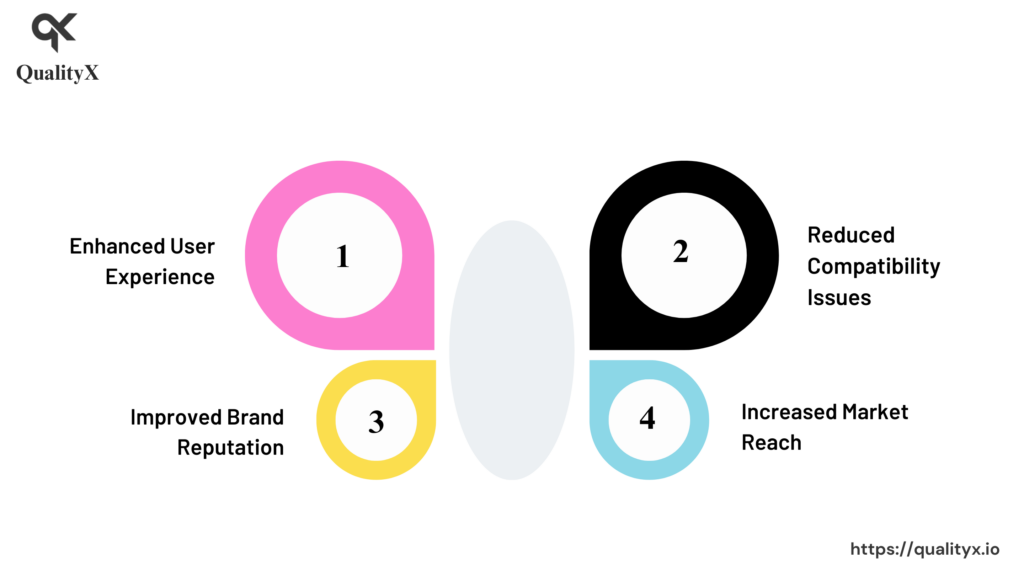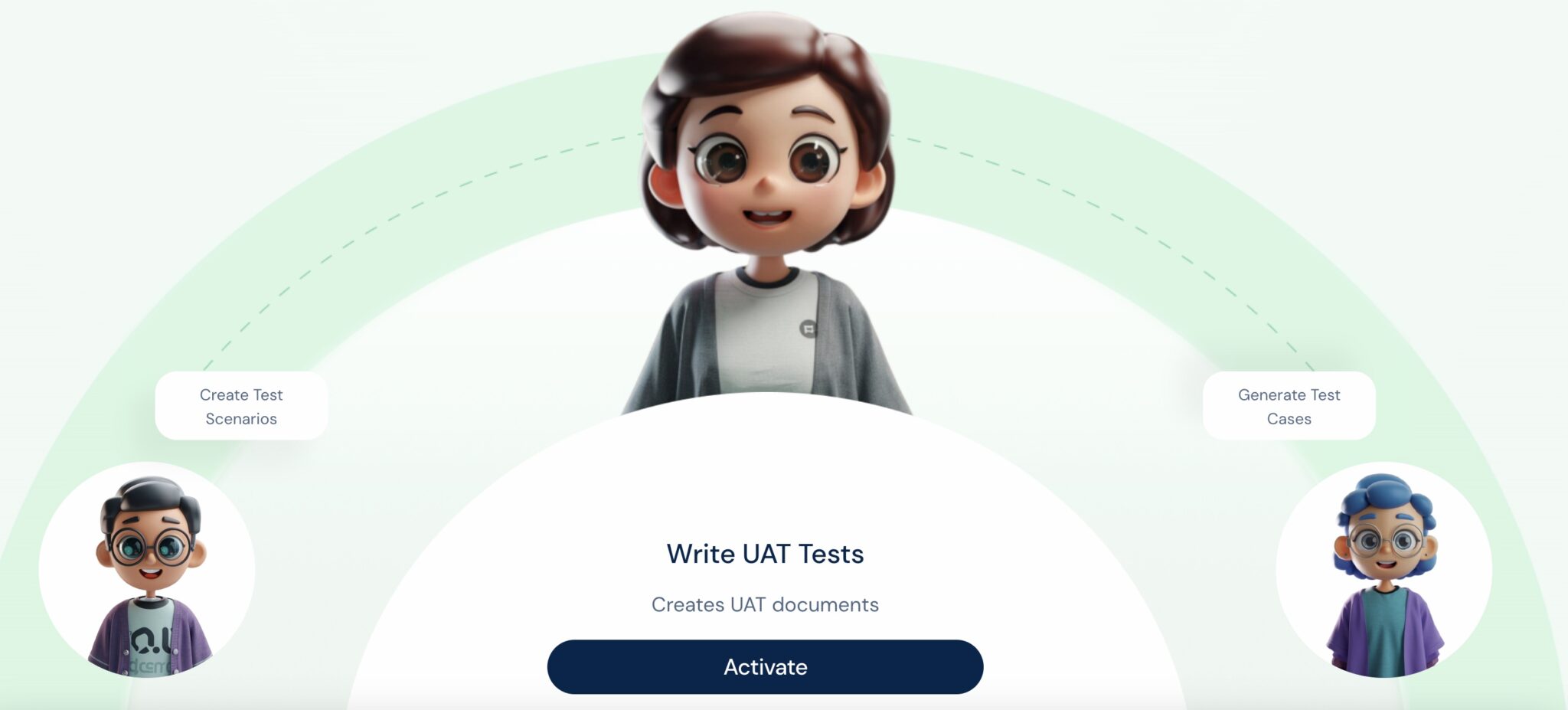Introduction
- In today’s dynamic digital landscape, ensuring a consistent and seamless user experience across multiple browsers is paramount for the success of any web application or website.
- Multi-browser testing, an integral part of the software development lifecycle, helps to identify and rectify browser-specific compatibility issues, ensuring that users have a positive and consistent experience regardless of their preferred browser.
Why Multi-Browser Testing is Crucial
- In today’s diverse and ever-evolving world of web browsers, it is essential to test web applications and websites across a variety of browsers to ensure optimal performance and compatibility.
- Different browsers have their own unique rendering engines, interpretations of web standards, and user interfaces, which can lead to inconsistencies and glitches if not properly addressed.
Benefits of Multi-Browser Testing

Benefits of Multi-Browser Testing
- Enhanced User Experience: Multi-browser testing ensures that users have a consistent and positive experience across all major browsers, fostering user satisfaction and loyalty.
- Reduced Compatibility Issues: By identifying and resolving browser-specific compatibility issues early in the development cycle, multi-browser testing prevents user frustration and potential revenue loss.
- Improved Brand Reputation: A well-tested and consistent user experience across browsers reflects positively on the brand, enhancing its reputation and credibility.
- Increased Market Reach: Multi-browser testing enables businesses to cater to a wider audience, reaching users across diverse device types and operating systems.
Types of Multi-Browser Testing
- Manual Testing: Testers manually interact with the application or website in different browsers to identify visual inconsistencies, functional errors, and usability issues.
- Automated Testing: Automated testing tools and scripts are used to streamline the testing process, enabling faster execution and regression testing.
- Cross-Browser Testing Tools: Dedicated cross-browser testing tools provide a virtualized environment where multiple browsers can be accessed and tested simultaneously.
Key Considerations for Effective Multi-Browser Testing
- Identify Target Browsers: Determine the most popular browsers among your target audience and prioritize testing for those browsers.
- Establish Testing Goals: Clearly define the objectives of multi-browser testing, focusing on specific features, functionalities, or user journeys.
- Prioritize High-Impact Browsers: Focus testing efforts on browsers with a significant user base and those known to have compatibility issues with your application or website.
- Consider Browser Versions: Test across multiple versions of popular browsers to ensure compatibility with different rendering engines and bug fixes.
- Utilize Testing Tools and Frameworks: Leverage automated testing tools and frameworks to expedite the testing process and improve efficiency.
- Involve Testers Early: Integrate testers early in the development cycle to provide insights into potential browser-specific issues.
- Continuously Monitor and Adapt: Regularly monitor and adapt testing strategies as new browser versions and features emerge.
Essential Multi-Browser Testing Tools
A variety of multi-browser testing tools are available to assist testers in identifying and resolving browser-specific compatibility issues. These tools provide virtualized environments where multiple browsers can be accessed and tested simultaneously, streamlining the testing process and enabling comprehensive testing across different devices and operating systems.
Here are some of the most popular and widely used multi-browser testing tools:
- aiTest : aiTest is a ai power testing platform It offers a user-friendly interface, multibrowser testing,API testing,URL testing,Stress testing, load Testing feature we can do all type of testing in one application.
- BrowserStack: BrowserStack provides a comprehensive cloud-based testing platform that supports over 3,000 real browsers and devices. It offers a user-friendly interface, real-time testing, and advanced features such as geo-location testing and screenshot capture.
- LambdaTest: LambdaTest is another popular cloud-based testing platform that supports over 2,000 real browsers and devices. It offers a wide range of testing options, including manual, automated, and cross-device testing.
- Sauce Labs: Sauce Labs is a well-established cloud-based testing platform that supports over 30,000 real browsers and devices. It offers a range of testing options, including manual, automated, and mobile testing.
- Selenium: Selenium is an open-source browser automation tool that can be used for cross-browser testing. It is a powerful tool that offers flexibility and customization, but it requires more technical expertise to set up and maintain.
- Cypress: Cypress is a modern JavaScript end-to-end testing framework that can be used for cross-browser testing. It is easy to use and offers a variety of features, such as time travel debugging and automatic waiting.
Conclusion
- Multi-browser testing is an indispensable aspect of web development, ensuring that applications and websites deliver a seamless and consistent user experience across a diverse range of browsers.
- By prioritizing multi-browser testing throughout the development process, businesses can enhance user satisfaction, protect their brand reputation, and expand their market reach in today’s competitive digital landscape.
aiTest: A Closer Look
aiTest an all-in-one testing platform. This platform is designed to conduct comprehensive testing on your applications concurrently. It supports cross-browser and browser version testing, as well as functional and performance tests integrated with Analytics. Additionally, the platform incorporates automation features, including an LLM for effortless generation and testing of machine learning models and generating test data for the same. One-stop solution for continuous testing, integrating seamlessly with CI/CD pipelines. With support for multiple languages and specialized testing for AI/ML services, aiTest empowers organizations to speed up their release cycles while ensuring quality and reliability.


